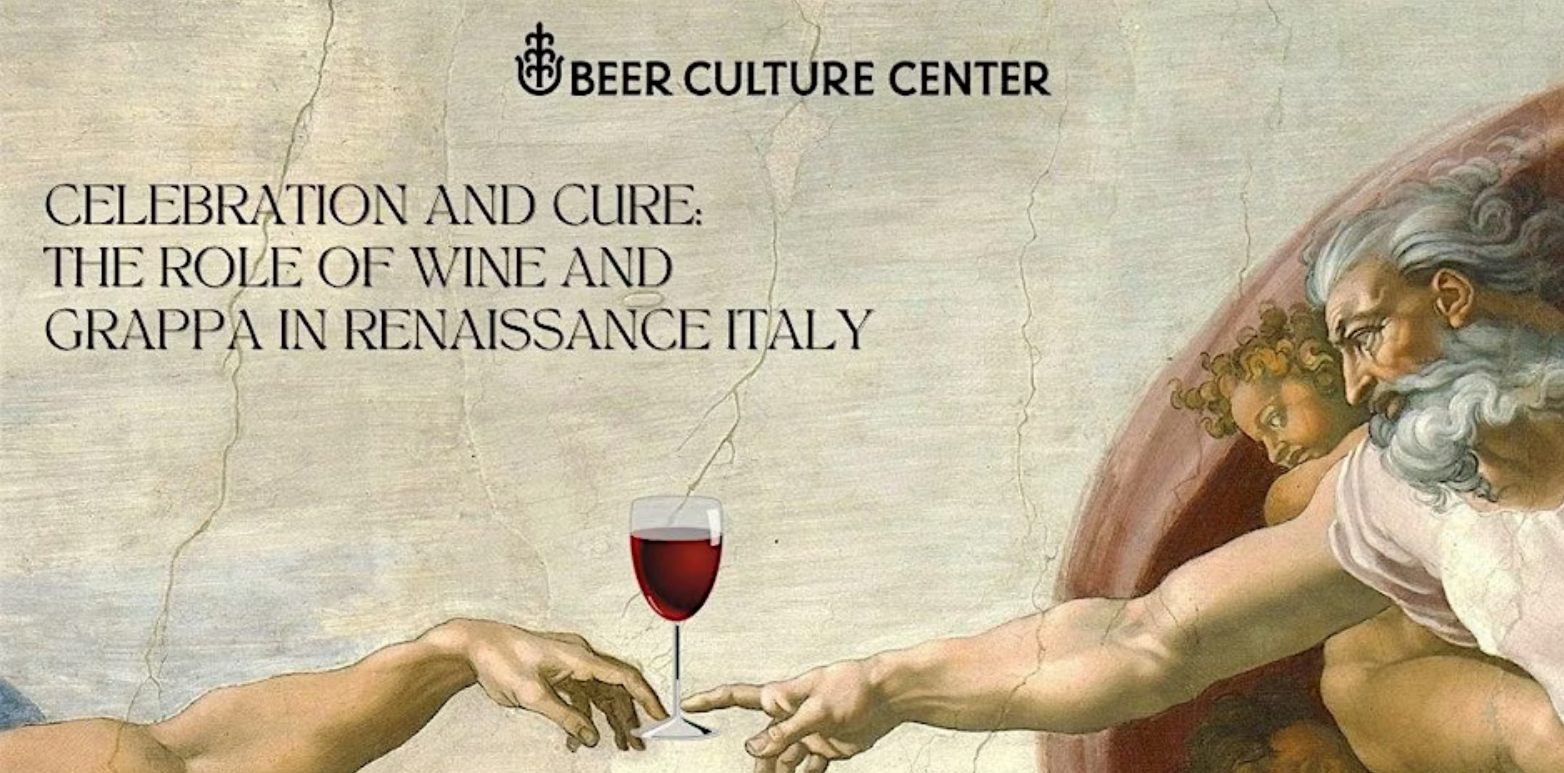
Celebration and Cure: The Role of Wine and Grappa in Renaissance Italy
Beer Culture Summit 2025
The Italian Renaissance has long been celebrated for its novel art and literature, shrewd political spirit, and economic innovation. This specific time and place are also tied to wine, a drink which fueled the artists, statesmen, and merchants who drove such grand cultural change. Wine was present at nearly every celebration, whether hosted by the wealthiest ruling families or modest peasants. Wine was used to heal the sick and fortify the weak. The grapes which yielded such precious wine were so valued that even the leftover skins and pulp were distilled into a spirit similarly consumed for celebration and cure: grappa.
In this presentation, culinary historian Sarah Kernan will consider the cultural history of wine and grappa in Renaissance Italy. She will focus on how and why these drinks were consumed, as well as their connections to wine and distilled spirits throughout Europe.
























